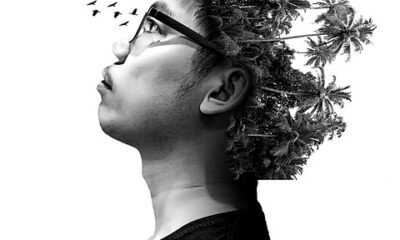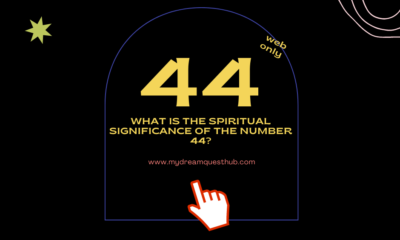Symbolism
What Does the Pearl Symbolize in Different Cultures and Traditions?
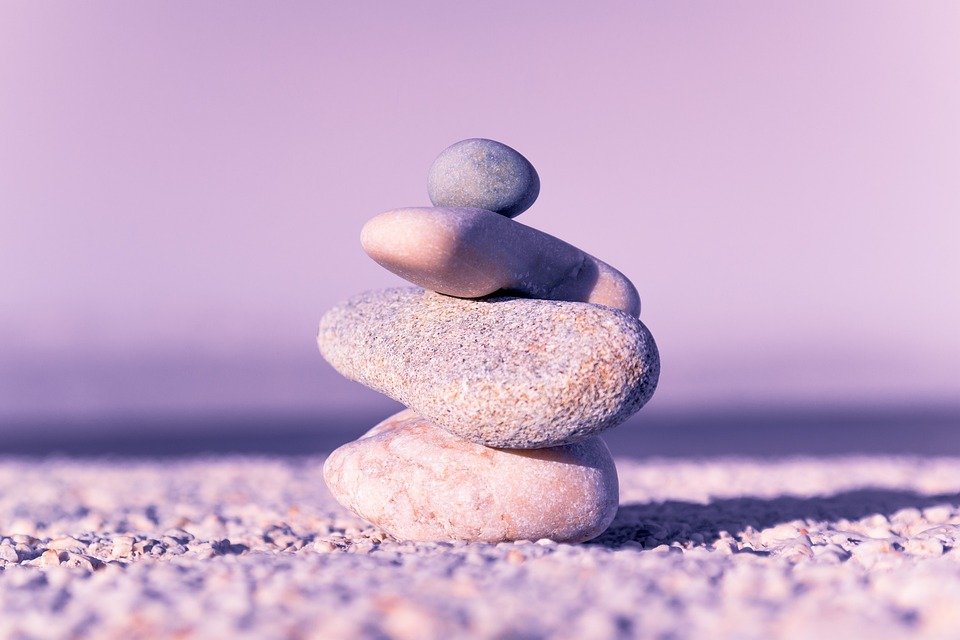
Explore the symbolism of the pearl in different cultures and traditions. Discover the various meanings and significance attached to this precious gemstone around the world. From ancient folklore to modern interpretations, learn how the pearl symbolizes wealth, purity, and wisdom in diverse societies.
What does the pearl symbolize in Christianity?
In Christianity, the pearl is often associated with purity and perfection. It is believed to represent the kingdom of heaven in the story of the “Pearl of Great Price” from the Gospel of Matthew. The pearl is seen as a symbol of spiritual enlightenment and divine grace, reflecting the value of seeking truth and righteousness.
Furthermore, the pearl has been connected to the Virgin Mary, symbolizing her purity and holiness. It is a sacred symbol that represents the immaculate conception and the divine presence within the Christian faith.
How is the pearl symbolized in Asian cultures?
In many Asian cultures, the pearl holds deep significance and symbolism. In Chinese mythology, pearls are associated with immortality and wisdom. The legendary pearl-producing clams are believed to possess mystical powers and bring good fortune to those who possess them.
In Japan, the pearl is considered a symbol of good luck and prosperity. Pearls are often given as gifts for special occasions such as weddings and birthdays to bring happiness and abundance to the recipient. They are also seen as a symbol of purity and beauty in Japanese culture.
What does the pearl symbolize in Native American traditions?
Native American tribes have their own interpretations of the pearl as a symbol of spiritual wisdom and protection. The pearl is believed to bring healing and purification to the wearer, connecting them to the natural world and the spirits of their ancestors.
For some Native American tribes, pearls are seen as gifts from the ocean and are used in traditional ceremonies to honor the Earth and the forces of nature. The pearl is a sacred symbol that represents the unity of all living beings and the interconnectedness of the universe.
How is the pearl interpreted in Middle Eastern cultures?
In Middle Eastern cultures, the pearl is often seen as a symbol of wealth and prosperity. Pearls have been prized for centuries in the Arabian Peninsula and are considered a sign of luxury and status among the elite.
The pearl is also associated with purity and elegance in Middle Eastern traditions, symbolizing the beauty and grace of the wearer. Pearls are often worn as jewelry for special occasions and celebrations, signifying the refinement and sophistication of the person wearing them.
What does the pearl symbolize in modern society?
In modern society, the pearl continues to hold symbolic meaning as a representation of elegance and sophistication. Pearls are often worn as fashionable accessories, signifying timeless beauty and style.
Furthermore, the pearl is seen as a symbol of strength and resilience, reflecting the hidden inner beauty and wisdom that lies within each individual. In a world that values materialism and external appearances, the pearl serves as a reminder of the importance of inner values and authenticity.
Conclusion
The pearl symbolizes a myriad of meanings across different cultures and traditions, reflecting the universal themes of purity, wisdom, and prosperity. Whether as a religious symbol or a fashion statement, the pearl continues to captivate and inspire people around the world with its timeless beauty and significance.
FAQs
1. What is the significance of pearls in mythology?
Pearls have long been associated with various myths and legends, representing different virtues such as purity, immortality, and divine grace.
2. How are pearls traditionally used in ceremonies?
Pearls are often used in ceremonial rituals and celebrations to symbolize purity, wisdom, and prosperity in many cultures.
3. What are the different cultural interpretations of pearls?
Various cultures interpret pearls differently, with each assigning its own symbolic meanings related to spirituality, wealth, and beauty.
4. Are pearls still considered valuable in modern society?
Despite advancements in technology, pearls continue to hold significant value as precious gemstones with symbolic importance in contemporary culture.
5. How can I incorporate the symbolism of pearls in my everyday life?
One can embrace the symbolism of pearls by wearing pearl jewelry, meditating on their meanings, or incorporating them into personal rituals or ceremonies.
Symbolism
What Does the Clock Symbolize in ‘The Masque of the Red Death’?
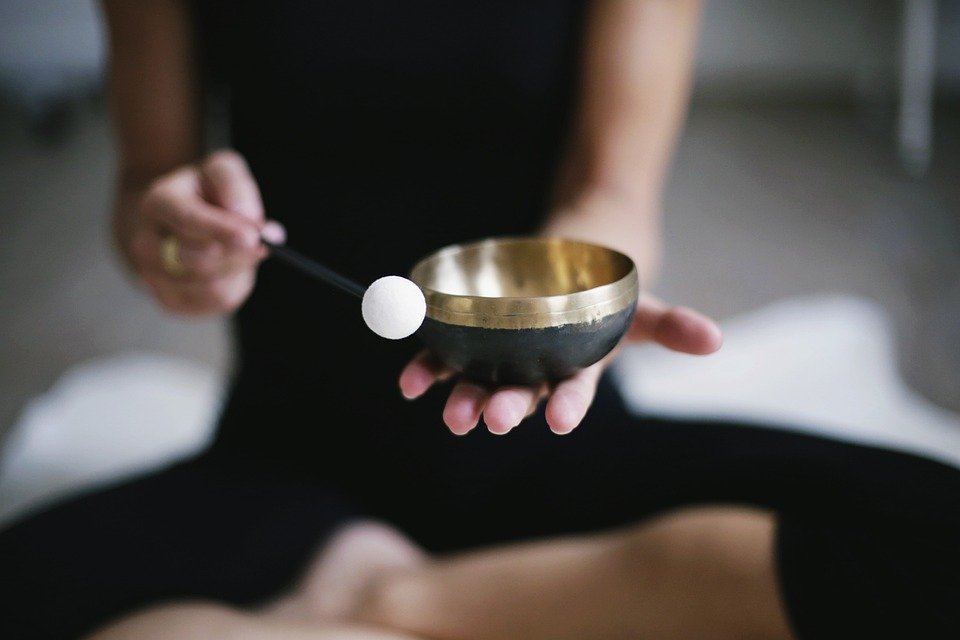
In this article, we will explore the symbolic meaning of the clock in Edgar Allan Poe’s short story “The Masque of the Red Death.” We will delve into how the clock serves as a powerful symbol throughout the story and what it represents in relation to the themes of time, mortality, and inevitability.
What is the significance of the clock in ‘The Masque of the Red Death’?
In Poe’s story, the clock is described as a large ebony clock that stands in the western room of Prince Prospero’s abbey. The clock’s chimes serve as a haunting reminder of the passage of time and the inevitability of death. Each hour, the clock strikes a deep, ominous sound that causes the revelers at the masquerade to pause and reflect on their mortality. The clock’s presence adds a sense of foreboding to the story, as it symbolizes the relentless march of time and the looming specter of death.
Furthermore, the clock’s color, black, is often associated with death and darkness, further reinforcing its symbolic significance in the story. As the revelers become increasingly disturbed by the clock’s chimes, they are forced to confront their own mortality and the futility of trying to escape death.
How does the clock symbolize the theme of time in the story?
The clock in ‘The Masque of the Red Death’ symbolizes the theme of time in several ways. Firstly, the clock serves as a reminder of the passage of time and the inevitability of death. Its regular chimes mark the progression of hours, symbolizing the ticking away of life and the approach of death.
Additionally, the clock’s placement in the western room, traditionally associated with death and the setting sun, reinforces its symbolic connection to the theme of time. As the revelers move from room to room, they are confronted by the looming presence of the clock, which serves as a constant reminder of their mortality and the fleeting nature of life.
What does the clock symbolize in relation to the concept of mortality?
In ‘The Masque of the Red Death,’ the clock symbolizes the inevitability of death and the futility of trying to escape it. The clock’s chimes serve as a grim reminder to the revelers that no one can escape their fate, regardless of their wealth or status. Despite their attempts to isolate themselves from the outside world, the presence of the clock reminds them that death is ever-present and inescapable.
Furthermore, the clock’s relentless ticking serves as a metaphor for the steady march of time towards death. As the revelers become increasingly agitated by the clock’s chimes, they are forced to confront the reality of their mortality and the transient nature of life.
How does the clock add to the overall atmosphere of ‘The Masque of the Red Death’?
The clock in ‘The Masque of the Red Death’ plays a crucial role in setting the ominous and foreboding atmosphere of the story. Its regular chimes create a sense of tension and unease among the revelers, as they are reminded of their mortality and the inevitability of death. The clock’s presence adds a layer of darkness to the story, highlighting the stark contrast between the revelers’ hedonistic celebrations and the grim reality of their impending demise.
Furthermore, the clock serves as a powerful symbol of the story’s themes of time, mortality, and inevitability. Its relentless ticking underscores the transient nature of life and the inescapable march of time towards death, adding depth and complexity to the story’s overall atmosphere.
Conclusion
In conclusion, the clock in ‘The Masque of the Red Death’ serves as a potent symbol of time, mortality, and inevitability. Its presence in the story adds a sense of foreboding and tension, underscoring the relentless march of time towards death. Through its regular chimes and ominous presence, the clock symbolizes the futility of trying to escape death and the inevitability of mortality.
FAQs
1. What is the meaning of the clock in ‘The Masque of the Red Death’?
The clock in ‘The Masque of the Red Death’ symbolizes the passage of time, mortality, and the inevitability of death. Its chimes serve as a reminder to the revelers of their mortality and the futility of trying to escape death.
2. How does the clock add to the atmosphere of the story?
The clock in ‘The Masque of the Red Death’ adds to the ominous and foreboding atmosphere of the story. Its regular chimes create tension and unease among the revelers, highlighting the stark contrast between their hedonistic celebrations and the reality of death.
3. What does the clock symbolize in relation to the theme of mortality?
The clock symbolizes the inevitability of death and the transient nature of life in ‘The Masque of the Red Death.’ Its presence serves as a constant reminder to the revelers that death is inescapable, regardless of their wealth or status.
4. How does the clock represent the theme of time in the story?
The clock in ‘The Masque of the Red Death’ symbolizes the passage of time and the relentless march towards death. Its chimes mark the progression of hours, underscoring the fleeting nature of life and the inevitability of mortality.
5. What role does the clock play in ‘The Masque of the Red Death’?
The clock in ‘The Masque of the Red Death’ plays a crucial role in setting the ominous atmosphere of the story. Its presence adds tension and unease, serving as a powerful symbol of time, mortality, and inevitability.
Symbolism
What Does the Teddy Bear Symbolize in Modern Society?
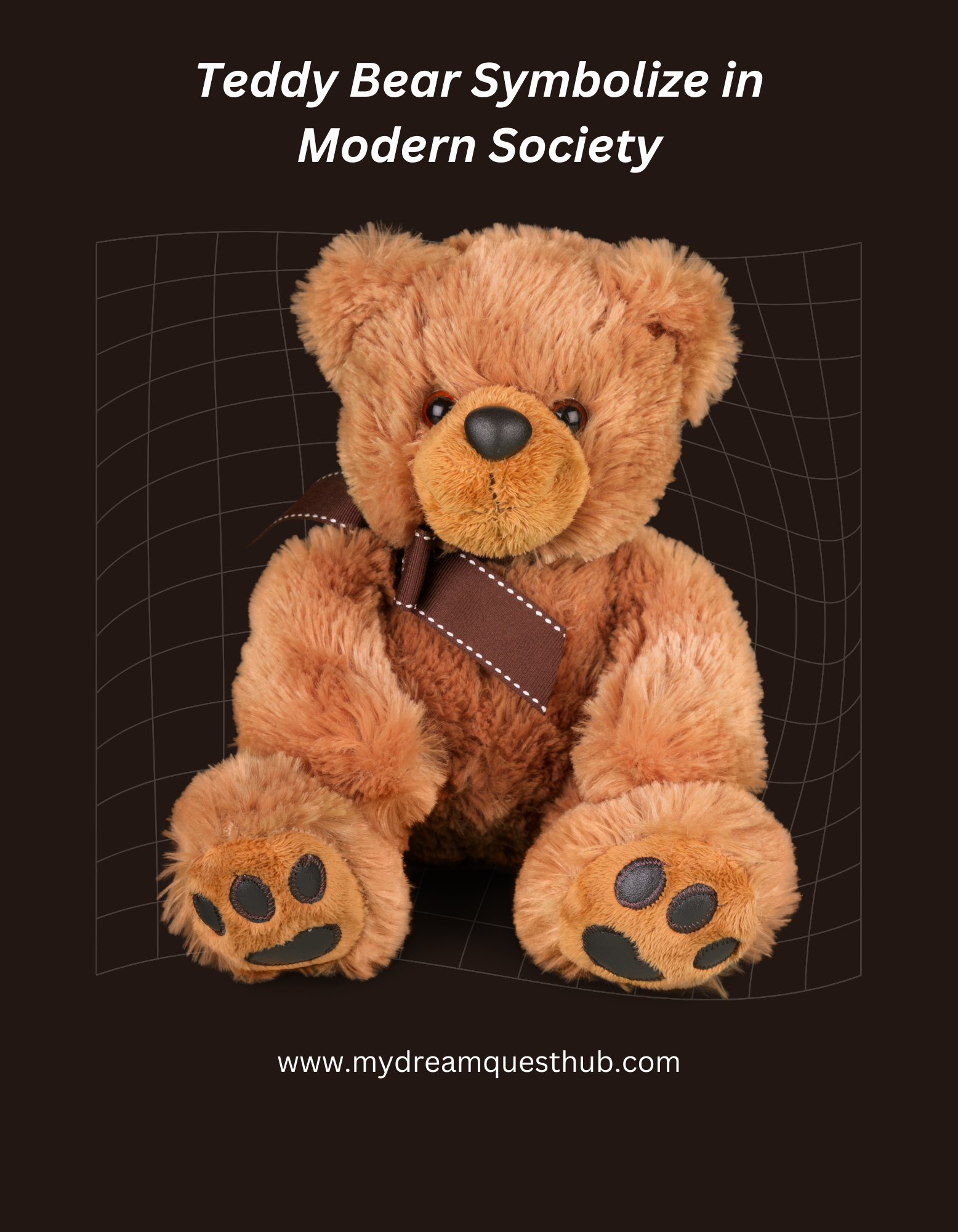
Description: In this article, we will explore the symbolism of the teddy bear in modern society. We will dive into the history of the teddy bear, its cultural significance, and the different meanings it holds for people today.
What is the history behind the teddy bear?
The teddy bear has a fascinating origin story that dates back to the early 20th century. It is believed to have been inspired by a hunting trip taken by former U.S. President Theodore Roosevelt. During the trip, Roosevelt famously refused to shoot a bear that had been captured for him to hunt. This act of kindness caught the attention of a political cartoonist, who depicted the President with the bear.
Following this event, the teddy bear became a popular toy for children, named after the iconic President. It quickly gained popularity worldwide and became a symbol of comfort and companionship.
What does the teddy bear symbolize in modern society?
In modern society, the teddy bear has come to symbolize various things for different people. For many, it represents childhood innocence and nostalgia. The teddy bear is often seen as a comforting presence, providing a sense of security and emotional support.
Additionally, the teddy bear is often used as a symbol of love and affection. It is a common gift exchanged between loved ones to express feelings of care and appreciation. The teddy bear also serves as a reminder of cherished memories and moments shared with loved ones.
How is the teddy bear culturally significant?
The teddy bear holds cultural significance in many societies around the world. In Japan, for example, the teddy bear is considered a symbol of cuteness and is often incorporated into kawaii culture. In the United States, the teddy bear is a popular toy for children and is often associated with comfort and security.
Furthermore, the teddy bear has been featured in various forms of media, including books, movies, and television shows. It has become a beloved icon in popular culture, representing themes of friendship, loyalty, and compassion.
How do people incorporate the teddy bear into their daily lives?
Many people incorporate the teddy bear into their daily lives in various ways. Some individuals collect teddy bears as a hobby, seeking out rare and unique designs to add to their collection. Others use teddy bears as decorative accents in their homes, displaying them in bedrooms or living spaces.
Additionally, the teddy bear is often given as a gift on special occasions such as birthdays, anniversaries, or holidays. It is a versatile and timeless gift that can bring joy and comfort to people of all ages.
What are some common misconceptions about the teddy bear?
One common misconception about the teddy bear is that it is only for children. While teddy bears are undoubtedly popular among kids, they also hold sentimental value for adults. Many adults cherish their teddy bears from childhood and continue to collect them throughout their lives.
Another misconception is that the teddy bear is a generic or mass-produced toy. In reality, there are many artisanal teddy bear makers who create unique, handcrafted designs with attention to detail and quality craftsmanship.
Conclusion
The teddy bear holds a special place in modern society, symbolizing comfort, companionship, and love. Its cultural significance and timeless appeal make it a cherished icon in popular culture. Whether as a childhood toy, a sentimental gift, or a decorative accent, the teddy bear continues to bring joy and warmth to people of all ages.
FAQs
1. Are teddy bears only meant for children?
No, teddy bears are loved by people of all ages and hold sentimental value for adults as well.
2. Can teddy bears be personalized or customized?
Yes, there are many artisanal teddy bear makers who offer personalized and custom designs for those seeking unique creations.
3. What occasions are suitable for giving a teddy bear as a gift?
Teddy bears make great gifts for birthdays, anniversaries, holidays, or any special occasion where you want to express love and affection.
4. How can I care for my teddy bear to ensure its longevity?
To care for your teddy bear, gently spot clean with a mild detergent and allow it to air dry. Avoid excessive heat or moisture to preserve its quality.
5. Are there any famous teddy bears in popular culture?
Yes, there are many iconic teddy bear characters in movies and literature, such as Winnie the Pooh and Paddington Bear, who have captured the hearts of audiences worldwide.
Symbolism
What Does the Black Horse Symbolize in Different Cultures and Mythologies?
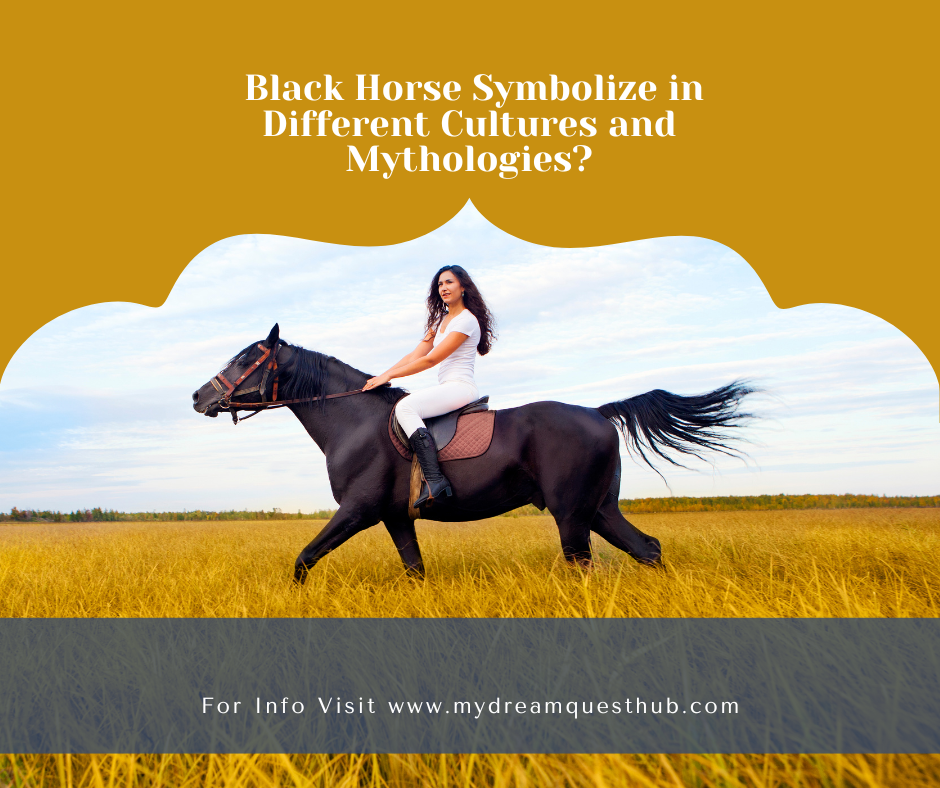
A black horse is often seen as a mystical and powerful symbol in different cultures and mythologies around the world. In this article, we will explore what the black horse symbolizes in various traditions and how it is perceived in different societies. From representing death and destruction to symbolizing strength and endurance, the black horse holds a significant place in folklore and legends.
What is the significance of the black horse in Norse mythology?
In Norse mythology, the black horse is associated with Hel, the goddess of the underworld. It is said that Hel rides a black horse named Sleipnir, who is considered to be one of the fastest and most powerful horses in all of the Nine Worlds. The black horse symbolizes death, darkness, and the unknown in Norse mythology, as it carries Hel to and from the land of the living.
Additionally, the black horse is often seen as a companion of the Valkyries, the warrior maidens who choose which warriors will live and which will die in battle. The black horse represents the inevitable fate of death and the warrior’s journey to the afterlife in Norse mythology.
What does the black horse symbolize in Native American cultures?
In Native American cultures, the black horse is often associated with strength, endurance, and the spirit of the wild. It is seen as a powerful and noble animal that embodies the essence of freedom and independence. The black horse is considered a symbol of protection and guidance, as well as a representation of the interconnectedness of all living beings.
Some Native American tribes believe that the black horse carries the wisdom of the ancestors and serves as a messenger between the physical and spiritual worlds. It is believed that encountering a black horse in a vision or a dream can signify a time of growth, transformation, and spiritual awakening.
What is the symbolism of the black horse in Celtic mythology?
In Celtic mythology, the black horse is often associated with the Otherworld and the journey of the soul after death. It is believed that the black horse serves as a guide for the deceased as they travel to the afterlife, carrying them safely across the threshold between the mortal realm and the realm of the spirits.
The black horse is also seen as a symbol of protection and guardianship in Celtic tradition, representing the bond between humans and the natural world. It is considered a sacred animal that brings strength, courage, and insight to those who encounter it in their dreams or meditations.
What does the black horse symbolize in Chinese mythology?
In Chinese mythology, the black horse is often associated with the god of war and victory, Guan Yu. It is said that Guan Yu rode a black horse into battle, symbolizing courage, loyalty, and honor on the battlefield. The black horse is considered a symbol of strength, resilience, and determination in Chinese culture.
Additionally, the black horse is seen as a harbinger of good fortune and prosperity in Chinese folklore, bringing blessings and success to those who encounter it. It is believed that the black horse can bring luck and protection to its rider, guiding them on a path of righteousness and victory.
What is the symbolic meaning of the black horse in Arabian mythology?
In Arabian mythology, the black horse is often associated with the legend of Al-Buraq, a mythical creature that carried the prophet Muhammad on his miraculous Night Journey. The black horse symbolizes speed, beauty, and divine intervention in Arabian culture, representing the power of faith and spirituality.
Furthermore, the black horse is considered a symbol of resilience and endurance in Arabian folklore, as it is believed to have the strength to overcome any obstacle or challenge. It is seen as a source of inspiration and guidance for those who seek to follow the path of righteousness and enlightenment.
Conclusion
The black horse holds a significant place in various cultures and mythologies around the world, symbolizing different aspects such as death, strength, protection, and guidance. Whether representing the underworld in Norse mythology or guiding the deceased to the afterlife in Celtic tradition, the black horse remains a powerful and mystical symbol that resonates with people from all walks of life.
FAQs
1. Is the black horse always associated with negative symbolism?
No, the black horse can represent both positive and negative aspects depending on the cultural context. While it may symbolize death and darkness in some mythologies, it can also signify strength, protection, and spiritual guidance in others.
2. Are there any modern interpretations of the black horse symbol?
Yes, the black horse continues to be a popular symbol in art, literature, and popular culture, often representing themes of mystery, power, and transformation. Its symbolism has evolved over time to reflect contemporary beliefs and values.
3. Can the black horse symbol have personal meaning for individuals?
Absolutely, the symbolic meaning of the black horse can vary from person to person based on their individual beliefs, experiences, and cultural background. Some may see it as a symbol of strength and resilience, while others may view it as a messenger of change and transformation.
4. Are there any rituals or traditions associated with the black horse symbol?
Yes, various cultures have rituals and ceremonies that involve the black horse as a symbol of protection, guidance, and spiritual connection. These rituals may be performed during important life events or celebrations to honor the symbolism of the black horse.
5. How can one incorporate the symbolism of the black horse into their own life?
Individuals can incorporate the symbolism of the black horse into their own lives through meditation, visualization, or creative expression. By connecting with the energy and power of the black horse, one can harness its strength and wisdom for personal growth and transformation.
-
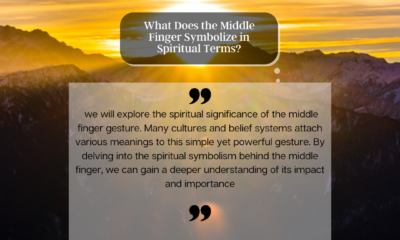
 Spiritual Meanings8 months ago
Spiritual Meanings8 months agoWhat Does the Middle Finger Symbolize in Spiritual Terms?
-

 Dream Meanings7 months ago
Dream Meanings7 months agoWhat does it mean when you dream about your partner cheating?
-

 Dream Meanings8 months ago
Dream Meanings8 months agoWhat does dreaming about playing cricket symbolize spiritually?
-

 Symbolism8 months ago
Symbolism8 months agoWhat Does Snow Symbolize in Literature and Film?
-
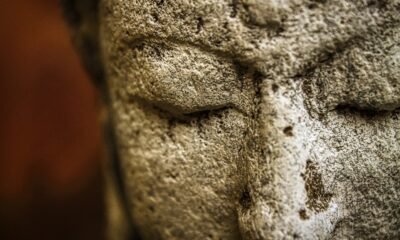
 Spiritual Meanings8 months ago
Spiritual Meanings8 months agoWhat is the Spiritual Meaning of Being a Handler?
-
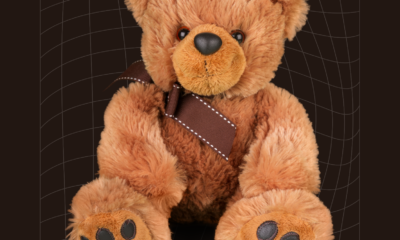
 Symbolism8 months ago
Symbolism8 months agoWhat Does the Teddy Bear Symbolize in Modern Society?
-
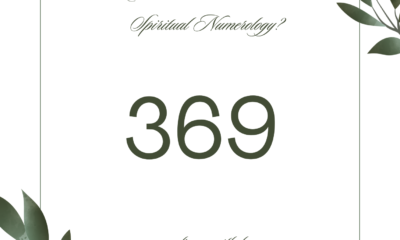
 Spiritual Meanings7 months ago
Spiritual Meanings7 months agoWhat Does the Number 369 Mean in Spiritual Numerology?
-

 Dream Meanings8 months ago
Dream Meanings8 months agoWhat Does It Mean to Dream About Flamingos? Exploring the Symbolism and Interpretations










